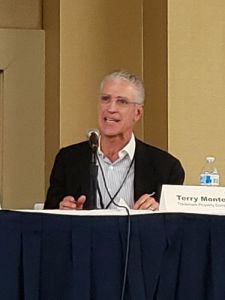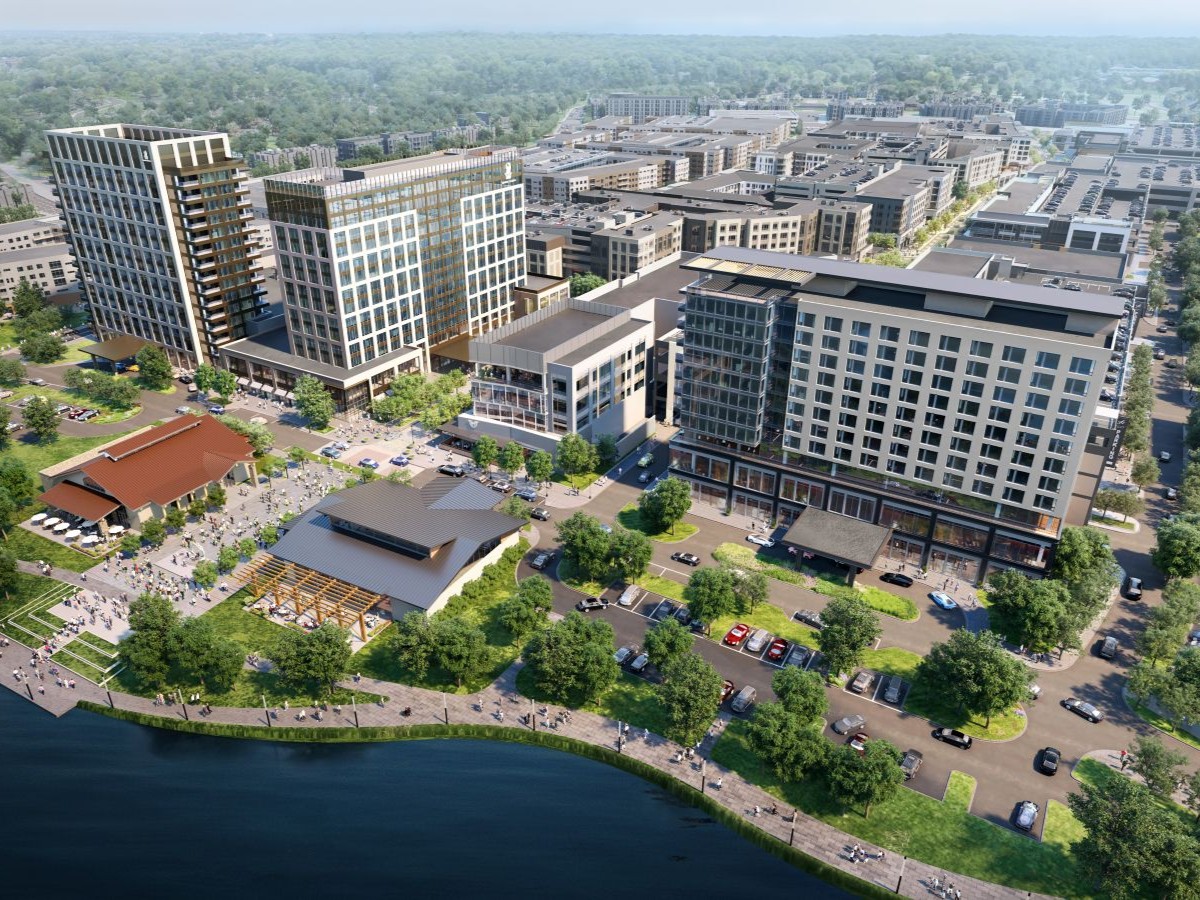NAREE Report: Retail Real Estate’s Post-COVID Reinvention
For retail property owners, success requires a return to basics, a more extensive analysis of consumer behavior and a willingness to rethink the mix.

Brad Sanders, Senior Managing Director & Global Project Management Leader, CBRE. Image courtesy of Suzann D. Silverman
Retail sector success has long required a combination of creativity and careful tracking of demographics and consumer behavior. Recovery from COVID-induced challenges has necessitated more extensive consumer analysis and further reinvention. Speakers during the panel “Transforming Retail Properties for Tomorrow” during the National Association of Real Estate Editors 2022 Real Estate Journalism Conference in Atlanta offered some key advice.
Retailers are extensively reevaluating and retooling, according to Brad Sanders, senior managing director & global project management leader at CBRE. They are examining everything from store configuration to programming, space to lighting and merchandizing. “No pause in expansion is episodic. They’re retooling, validating, reconfiguring for online shopping,” he said. They also continue to refine their approach to omnichannel retailing, incorporating the store “as a point in the supply chain.”
READ ALSO: Retail Fundamentals Stay Positive
And while demographic and psychographic analysis have historically advised retailer decisions, they are now employing predictive analytics, as well, to more precisely pinpoint shopper behavior. They are also looking to their brokers for a broader suite of services, including site analytics, tenant representation, project management, lease administration and facilities management.
Back to basics
For real estate providers, changes boil down to a few points, according to Lilly Golden, president & founder of Evergreen Commercial Realty: Only build what the market demands, focus on foot traffic, and remember the basics in order to realize shopping centers’ full potential.

Lilly Golden, President & Founder, Evergreen Commercial Realty. Image courtesy of Suzann D. Silverman
Beyond that, she recommended a more “holistic approach” to shopping centers in order to achieve the necessary volume of foot traffic. She pointed to Evergreen’s experience re-leasing LaCenterra at Cinco Ranch in Katy, Texas. A mid-50s average demographic target among anchors presented a real limitation for a center located in an area with a mid-30s average age. The solution: a broader change in retailer mix, along with the addition of such innovations as shopping with the family dog, as well as the opportunity to sip beer or wine while shopping.
Another shift in approach resulted from the realization of consumers increased appreciation for time in COVID’s aftermath. Whereas previously they might drive 10 minutes to save $10, now they’re more likely to spend the money rather than the time. As a result, “we’re changing the way we lease space,” she said.
READ ALSO: How the Pandemic Changed Malls
For Terry Montesi, CEO of Trademark Property Co., the focus is on mixed-use and incorporation of outdoor space. Trademark, which is redeveloping Dallas’ Galleria, is also acquiring Lincoln Square in Arlington, Texas, he announced. In both cases, he said, it makes sense to reduce retail space and introduce multifamily, which is “where the growth is.” At the North Point Mall in Alpharetta, Ga., the company is adding multifamily, hotel and office, as well as outdoor space. Furthermore, all of Trademark’s redevelopments are “food forward” and “entertainment based.”
Other retail shifts include grocery stores remerchandising and reducing square footage, as well as increased “medtail,” or incorporation of medical uses as part of the retail mix, Montesi noted. And while department stores won’t go away, he affirmed, they will have to reinvent themselves. “There will be fewer, and they won’t cannibalize each other,” he said.








You must be logged in to post a comment.